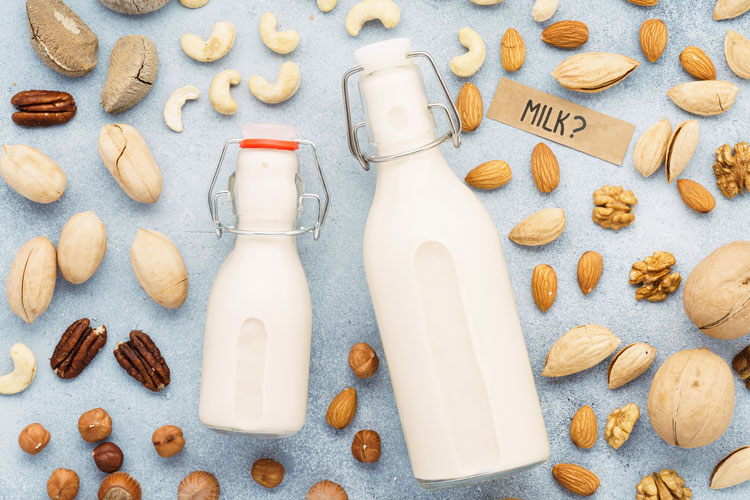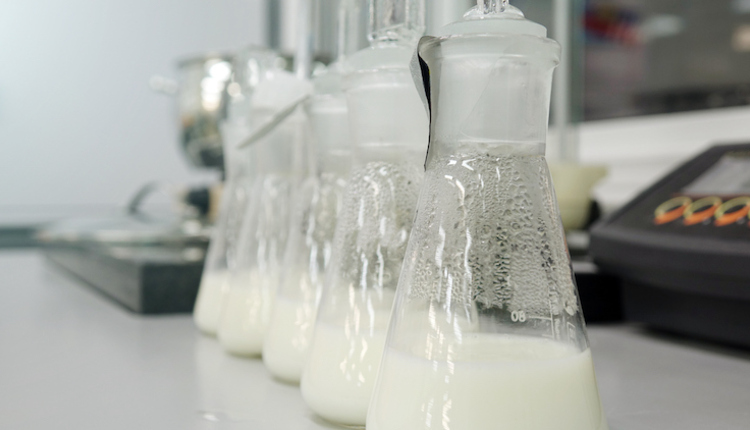
It’s a tale that’s lasted decades too long.
Plant-based companies continue to use dairy terms on their products, violating labeling laws while the Food and Drug Administration (FDA) looks the other way. But now a new kid has entered the conversation: synthetic “dairy” products that claim to be “animal-free,” yet worthy of a dairy name.
Synthetic dairy proteins are made in a lab by taking a section of a DNA sequence, programming or genetically modifying yeast and microflora with a specific DNA sequence, and then using precision fermentation to replicate it. The end product is a single whey protein that’s then used to make products that companies are touting as dairy. That’s similar to the playbook the plant-based industry has run for years — and as research shows, it creates a false equivalence among consumers.
However, these companies aren’t making actual dairy, like milk, cheese, and ice cream.
Dairy foods are extremely complex. They offer essential nutrients, numerous high-quality proteins, micronutrients, and hundreds of fatty acids, all of which interact with each other to deliver one of the most nutritious foods in the marketplace. Creating a single synthetic dairy protein and mixing it with other ingredients to make a synthetic food product — the method currently being developed for commercial products — doesn’t create anything approaching the complexity of actual dairy.
The National Milk Producers Federation (NMPF) has been calling on FDA to enforce its own standards of identity for dairy for decades. This has included numerous meetings, comments, filing a citizen petition, and sending letters to the FDA’s office of the Ombudsman.
Last March, FDA sent draft guidance for the industry on the “Labeling of Plant-based Milk Alternatives and Voluntary Nutrient Statements” to the FDA’s Office of Management and Budget. That document has yet to be released. In the meantime, we continue the fight for labeling integrity, for dairy farmers and for consumers.
NMPF’s largest concern with the misuse of dairy terms is the nutritional issues that have arisen in recent years from the use of plant-based beverages as alternative nutrition sources, especially in children. Because plant-based products do not follow the labeling laws and use dairy terms on their products, consumers are assuming that they offer the same nutrient package as dairy products, which is inaccurate. In the most critical of cases, it has led to nutritional deficiency diseases like Kwashiorkor and rickets.
For decades, NMPF has been baffled by why FDA has not enforced its rules, especially given that it harms human health. Recently, FDA issued a new standard of identity for yogurt. In that rulemaking, FDA specifically calls out the importance of standards. But it seems FDA only cares about such standards when it comes to a real dairy product; with plant-based (and soon, we worry, lab-based) imitators, a “Wild West” mentality has prevailed.
The inconsistency is frustrating.
What they have been doing by allowing plant-based food companies to break all the labeling rules is simply wrong, and we cannot allow it to spread to up-and-coming, lab-created synthetic foods.
To better understand FDA’s haphazard approach to standards when applied to dairy, NMPF has sent a Freedom of Information Act (FOIA) request for all information related to:
- Plant-based labeling
- The use of the term “animal-free”
- The negative human health consequences due to mislabeling of plant-based products and much more
It’s critical that we do this, as with a new generation of imitators on the horizon, we need to stand up for dairy now before consumer confusion proliferates further.








